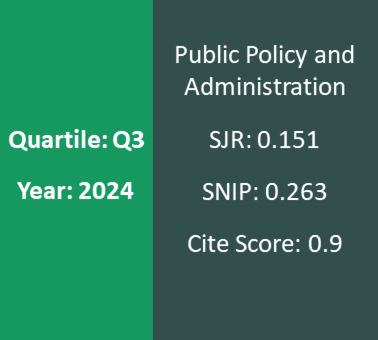Representation Asymmetry and Business Penetration in Public Policy: the Case of Klaipëda Local Self-Government
Keywords:
public governance, local self-government, representation, diversity effect.Abstract
The article deals with the problem of representation in the area of local public policy. Representation is a
crucial element of any democratic society. The democratic society should be reflected as sharp as possible in the
representative institutions. Otherwise, if the reflection of society’s structure is distorted, there will be a great danger
to fall into the asymmetry of democracy. Contemporary public administration extended the traditionally political
notion of representation into the area of bureaucracy. The distinction between the passive and the active representation
was developed. Despite that there is no consensuses of whether the passive representation always leads to the active one, the authors of the article keep a premise that most often the passive representation leads to the active
one, but it may become a negative point if the passive representation is not the sharp one. While the local council
is considered as a subject of public administration in Lithuania, the authors of the article choose to research how
sharp the local council of Klaipëda represents the community of the city. The problem is relevant because the
contemporary public policy is increasingly oriented towards the notion of public governance. Applying the casestudy
method and analytical statistics, article analyzes the last four elections to the local council of Klaipëda. Due
to the wide scope of the topic, the object of the research is divided into the four main structural components:
representation of gender, nationality, age-group, and occupation. Additionally, the diversity effect is calculated
applying the Blau index. The research proved that the passive representation in the local council is not the sharp
one. Among all, the distinct domination of only two - business and education - occupational groups revealed that
there are negative tendencies in the development of local democracy. Two of them are of the greatest menace: 1)
prevailing of business leaders might lead to the market relationships in the processes of solving social problems, 2)
governing may become available only for the privileged closed stratas what jeopardize the fading of democracy.
Knowing that passive representation may lead to the active one, it is possible to envisage the predominance of the
certain interests’ implementation what leads to the so called asymmetry of democracy.





